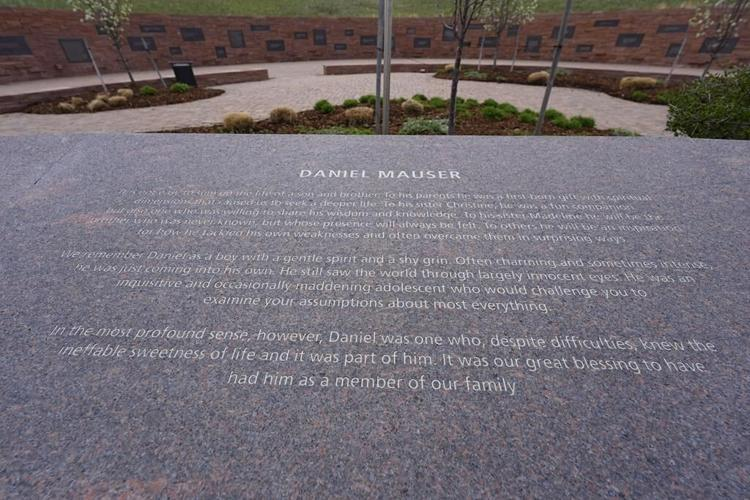
Trauma still shadows the survivors of the horrific Columbine High School shooting as the attack's 25th anniversary approaches. (AP Photo/David Zalubowski)
In the aftermath of the Columbine High School shooting, the trauma continues to haunt survivors like Missy Mendo, who was just 14 when she escaped the attack. Even 25 years later, memories of that day remain vivid, resurfacing whenever she hears about similar tragedies. Mendo's experience reflects the enduring impact of the shooting, which unfolded in suburban Denver, leaving 12 students and a teacher dead.
For Mendo, the trauma resurfaced when she learned about the mass shooting at a Las Vegas country music festival in 2017, a city she frequented while working in the casino industry. Then, in 2022, news of a school shooting in Uvalde, Texas, triggered her emotions once again.
Despite not being physically injured during the Columbine attack, survivors like Mendo have struggled with lingering psychological wounds. The trauma often manifests unexpectedly, with triggers like fireworks reigniting disturbing memories. Many survivors have battled insomnia, dropped out of school, or experienced strains in their personal relationships as a result of the shooting's aftermath.
Each April, as the anniversary of the Columbine shooting approaches, Mendo finds herself grappling with heightened anxiety and difficulty focusing. Simple tasks become overwhelming, and she relies on therapy and support groups like The Rebels Project, founded by fellow survivors, to cope with her emotions. Even mundane activities like dentist appointments become stressful during this time.
Research on the long-term effects of gun violence in schools has revealed the extensive challenges faced by survivors. Beyond the immediate casualties, survivors often contend with academic setbacks, decreased college enrollment, and lower earning potential later in life. The psychological toll of such traumatic events can persist indefinitely, impacting survivors' overall well-being and life trajectories.
Since the Columbine shooting, there has been a disturbing rise in mass killings, with nearly 600 attacks resulting in four or more fatalities since 2006, according to data compiled by The Associated Press. Gun violence in schools has become an all-too-common occurrence, affecting hundreds of thousands of individuals across the country. These incidents have lasting consequences, contributing to a pervasive sense of fear and anxiety among survivors.
Despite the challenges they face, survivors like Heather Martin and Kiki Leyba have found ways to navigate their trauma and support others in similar situations. Martin, a co-founder of The Rebels Project, initially struggled to acknowledge her survivor status but eventually embraced it as a way to advocate for change. Leyba, a first-year teacher at Columbine during the shooting, battled PTSD and panic attacks but found solace in therapy and community support.
For Mendo and countless others, the journey toward healing is ongoing. Despite the passage of time, the scars of the Columbine shooting remain etched in their memories, serving as a constant reminder of the enduring impact of gun violence on individuals and communities. As they continue to grapple with their trauma, survivors are determined to find strength in solidarity and advocate for meaningful change to prevent future tragedies.















